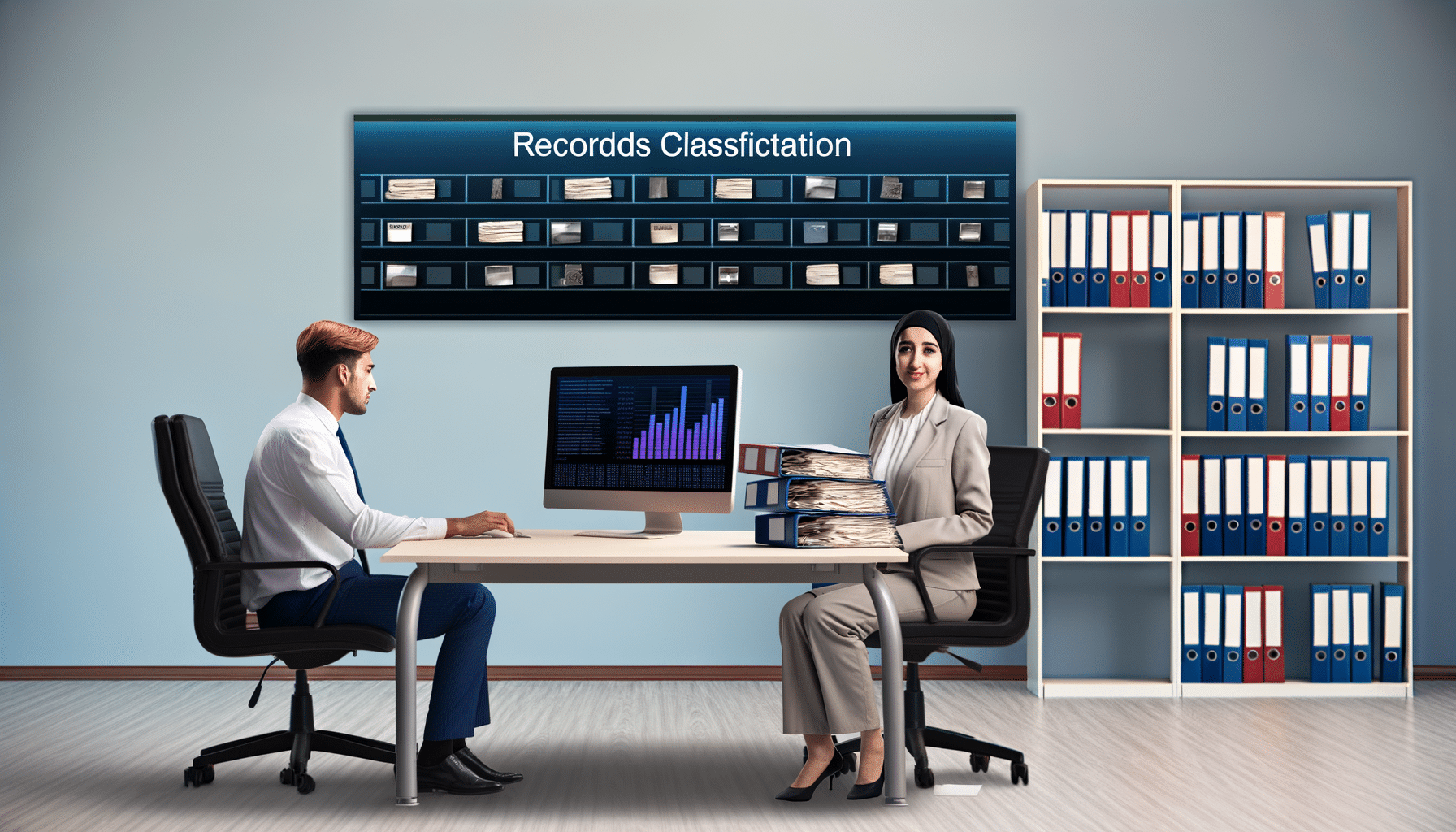Introduction
Record management has always been a pivotal component for any organization, serving both as a support mechanism and a strategic advantage. In my journey with RecordsKeeper.AI, I have seen firsthand how effective records classification can transform organizational efficiency. What if there was a way to turn a daunting task into a seamless experience? This blog unravels the practical approaches to records classification, offering a quick guide to simplify this essential process.
Why Records Classification Matters
At its core, records classification is the systematic categorization of documents and files for ease of retrieval and management. Think about how chaotic a library would be without classification! Likewise, in any business environment, proper records classification can significantly impact productivity and compliance adherence.
With well-structured records, you can swiftly access relevant information, saving valuable time and resources.
Proper classification ensures that sensitive records are handled with extra care, aligning with security policies and standards.
Regulatory mandates such as GDPR and HIPAA require organizations to manage data in a classified format to ensure compliance.
Key Approaches to Classification
Automated Classification
In the age of technology, why rely solely on traditional methods when AI can revolutionize the classification process? At RecordsKeeper.AI, automated classification uses artificial intelligence to self-sort documents based on predefined criteria, reducing human error and speeding up the process.
Functional Classification
Organizing records according to business functions or processes is a classic approach. This method not only supports operational needs but also enhances accountability.
Hierarchical Classification
Hierarchical structuring allows records to be classified from broad categories down to specific ones. This is especially useful in complex organizations with varied operations.
Best Practices for Effective Records Classification
1. Conduct a Needs Assessment – Understand the nature of records and their usage in your organization to tailor a classification system accordingly.
2. Adopt Consistent Naming Conventions – Consistency in record naming can lead to better retrieval and reduced redundancy.
3. Leverage Technology – Platforms like RecordsKeeper.AI offer advanced solutions that combine AI and Blockchain technologies for an automated, secure, and compliant classification process.
4. Update Regularly – As business needs evolve, so should your classification system. Regular reviews ensure that the system remains relevant and effective.
Overcoming Common Challenges
Despite its apparent benefits, records classification can be fraught with challenges. However, these can be mitigated with informed strategies:
– Complexity: Break down the classification process into manageable chunks using straightforward guidelines.
– Resistance to Change: Educate team members about the benefits of a well-organized classification system, encouraging buy-in from all stakeholders.
– Integration Issues: Choose interoperable tools that can easily integrate with existing systems for seamless operations.
Conclusion
In conclusion, an effective records classification system is far more than a regulatory checkbox; it is a strategic asset that can drive productivity and compliance. By adopting modern practices and leveraging technology like RecordsKeeper.AI, organizations can turn record-keeping from a mundane task into a meaningful advantage. If you’re ready for a transformation, I invite you to delve deeper into the RecordsKeeper.AI spectrum and explore the full potential of our platform.
Stay tuned with me, Toshendra Sharma, for more insights on entrepreneurship and tech innovation, as we continue to drive RecordsKeeper.AI to new heights. Transforming record management is just the beginning.








